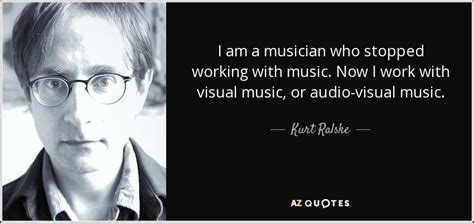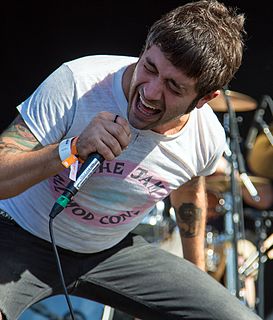A Quote by Susan Ann Sulley
The whole music industry has completely and totally changed from how it was. It's very, very different. When we started, there were loads of record company people throwing money at musicians, and that did give people a long term career.
Related Quotes
That was an idea of the record company, and also that was my first album after MCA and we wanted to come back with a strong album that would be noticed. If we put the vocals by very talented people and very meaningful songs, then the vocals would be a platform so that I could be noticed again. All of the MCA albums were just loaded with problems -- you know, the right musicians, the engineers. The record company would say 'You have to make music for black radio, you can't do what you have been doing with The Crusaders.' Everybody was telling me that was over, finished, done.
Everything has changed since I started recording in 1972. But the very things that have opened this industry, like the digital platforms to reach more people, have also killed things that were happening before in the recording studio. Now, most of the time, there are no real musicians in the studio; it's people with sequencers and things.
Obviously I want my music on the radio and I want my record to do well, but I also have a totally different career, so a lot of people who are in music are just in music and can dedicate all their time to that and I can't do that, so I really want to have both things and I'm just trying to figure out how.
Some people who make music are instantly very savvy about how they can get their music to communicate in a larger way. For me, the music was always first, and I put a lot of time and effort and thought into making the recordings. But everything else around it, all the things that were necessary to have a career in pop music, I was completely ill equipped to handle.
I must say, the people who started this whole Masterclass series have been very helpful and very intelligent to point out certain things and also give me some guidance, "isn't there something missing, shouldn't we address this or that?" so it's not completely alone out of the blue. It's very well thought through.
These people that started here, they support the government now against those rebels. Why talking about what happened at the very beginning is completely different from what is happening now - it's not the same. There's very high dynamic, things are changing on daily basis. It's a completely different image. Those people who wanted revolution, they are cooperating with us.
Whenever I talk to people who founded a company, I often like to ask the prehistory questions 'When did you meet? How long have you been working before you started the company?' A bad answer is, 'We met at a networking event a week ago, and we started a company because we both want to be entrepreneurs.'
To be very fair, it was Ian Marsh and Martyn Ware who started The Human League. They brought Philip Oakey in to sing, primarily because Philip was very tall. So it started out as their vision. I don't think anyone ever thought it would be as big as it became. Music evolves and people were looking for something different. We came out at the right time and were just very lucky.
A lot of people ask me, 'How did you have the courage to walk up to record labels when you were 12 or 13 and jump right into the music industry?' It's because I knew I could never feel the kind of rejection that I felt in middle school. Because in the music industry, if they're gonna say no to you, at least they're gonna be polite about it.


































